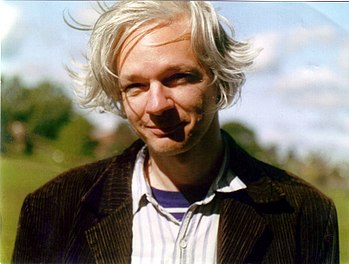
“How sweet it is” and “screw the UN” seem to be the major media tag lines to the UN Working Group on Arbitrary Detention’s ruling in favor of political prisoner Julian Assange: The former from Assange himself, welcoming vindication of his claim that more than five years under house arrest and/or confined to Ecuador’s UK embassy do indeed constitute illegal detention, the latter from British foreign secretary Philip Hammond and the London Metropolitan Police, neither of which apparently intend to abide by the verdict.
Less ballyhoo and nearly no analysis accompany another of Assange’s statements. His legal team, he announced, is considering possible “criminal consequences” which might attach to the detention. Think he’s blowing smoke? Think again.
The Working Group’s rulings are not, per se, binding on any government. But the Rome Statute is — at least on its signatories, which include Sweden and the UK.
When we consider the context and background — namely that Sweden and the UK have served and continue to serve as proxies for the United States in its pursuit of Assange for his role in exposing US war crimes in Iraq, Afghanistan and elsewhere — an array of possible charges before the International Criminal Court quickly begin to look quite plausible.
Among those charges are the war crime of denying a fair trial, the attempted war crime of unlawful deportation and transfer, the war crime of unlawful confinement, and the offence against administration of justice of “obstructing or interfering with the attendance or testimony of a witness, retaliating against a witness for giving testimony, tampering with or interfering with the collection of evidence …”
Are these the possible “criminal consequences” Assange foresees? There’s good reason to believe so.
In his speech, Assange notes that the ruling is based on “binding covenants which the UK, Sweden, and the United States (for the most part) have agreed to.” That’s clearly a reference to the US remaining non-signatory to the Rome Statute and holding itself out as beyond the jurisdiction of the ICC (it isn’t, at least not entirely).
Prior to this ruling, Assange’s persecutors might have been able to plausibly claim legal uncertainty as an extenuating circumstance. That defense is no longer available. Assange’s continued confinement after the ruling constitutes the knowing and intentional commission of several prosecutable war crimes.
Assange is no longer the hunted, but once again the hunter. And his aim is true.
Thomas L. Knapp is director and senior news analyst at the William Lloyd Garrison Center for Libertarian Advocacy Journalism (thegarrisoncenter.org). He lives and works in north central Florida.
PUBLICATION/CITATION HISTORY
- “When in Rome: ‘Criminal Consequences’ for Assange’s Tormentors?” by Thomas L. Knapp, OpEdNews, 02/06/16
- “When in Rome: ‘Criminal Consequences’ for Assange’s Tormentors?” by Thomas L. Knapp, Antiwar.com, 02/08/16
- “When in Rome: ‘Criminal Consequences’ for Assange’s Tormentors?” by Thomas L. Knapp, Ventura County, California Citizens Journal, 02/09/16
- “When in Rome: ‘Criminal Consequences’ for Assange’s Tormentors?” by Thomas L. Knapp, Key West: The Newspaper [Florida], 02/12/16

